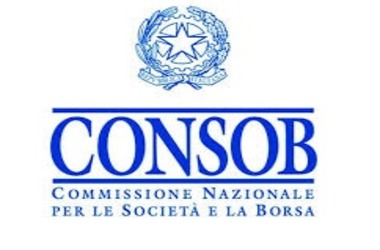 Several portals facilitating trading in financial markets (Forex, cryptocurrency and derivatives) have been closed by Italian securities regulator. Specifically, six Forex portals, and two derivative trading and cryptocurrency investing websites have been shut down by authorities.
Several portals facilitating trading in financial markets (Forex, cryptocurrency and derivatives) have been closed by Italian securities regulator. Specifically, six Forex portals, and two derivative trading and cryptocurrency investing websites have been shut down by authorities.
As per Finance Magnates, the Commissione Nazionale per le Società e la Borsa (CONSOB) has blamed eight Forex sites of breaching the Mifid2 and the Consolidated Law on Finance (TUF) for promoting unlawful trading products and services.
Intended to safeguard investors, the Italian authorities are working to bring crypto regulation in the country. A ministerial resolution in 2016 put into practice a judgment given by the European Court of Justice.
The decree prescribes that any trade involving the transfer of cryptocurrencies against fiat should not be subjected to tax, but profits and losses from these transactions are taxable.
The Italian Senate Committee on Corporate Affairs is also drafting legislation. The organization intends to establish rules for the regulation of financial dealings of all software and finance related companies electronically.
“Legislative Decree No. 90 of 2017 subjected virtual currency providers to the regulations established for traditional money exchange operators. To that effect, Legislative Decree No. 90 charged the Ministry of the Economy and Finance to issue a ministerial decree setting forth the modalities and timelines for the legal performance of such activities throughout the country.”
While speaking at the Code4Future conference, Giulio Tremonti, Ex-Minister of Economy and Finance, expressed his opinion on what is expected for digital payments in the future and about the arrival of cryptos.
Furthermore, Tremonti took part in a round table debate. He trusts that the opportunities provided by the fintech sector were disrupting the manner in which business is done and also the function of conventional banks.
“Banks may be caught off-guard by fintech activities. An alliance between traditional banks and new digital industries is essential. A structure that incorporates new techniques but maintains old values.”
Tremonti also gave his view on decentralized cryptos such as Bitcoin:
“It’s the future and you cannot stop it. Having said that, Bitcoin does not have a clear legal status, and this is clearly an obstacle. According to accounting rules, it’s an asset you should put on your financial statements. But if it’s an asset that you should put on your financial statements, should VAT be applied when it is sold? It is still an area of great uncertainty.”








